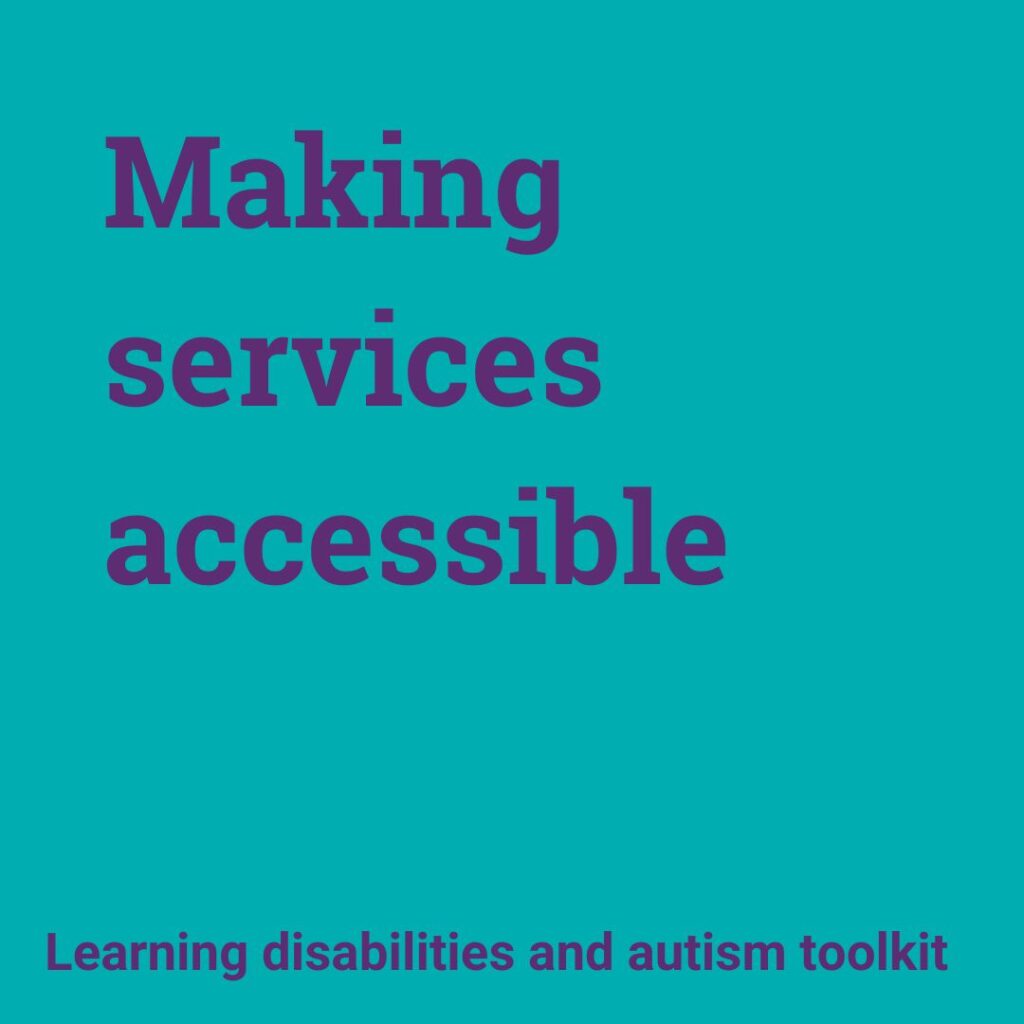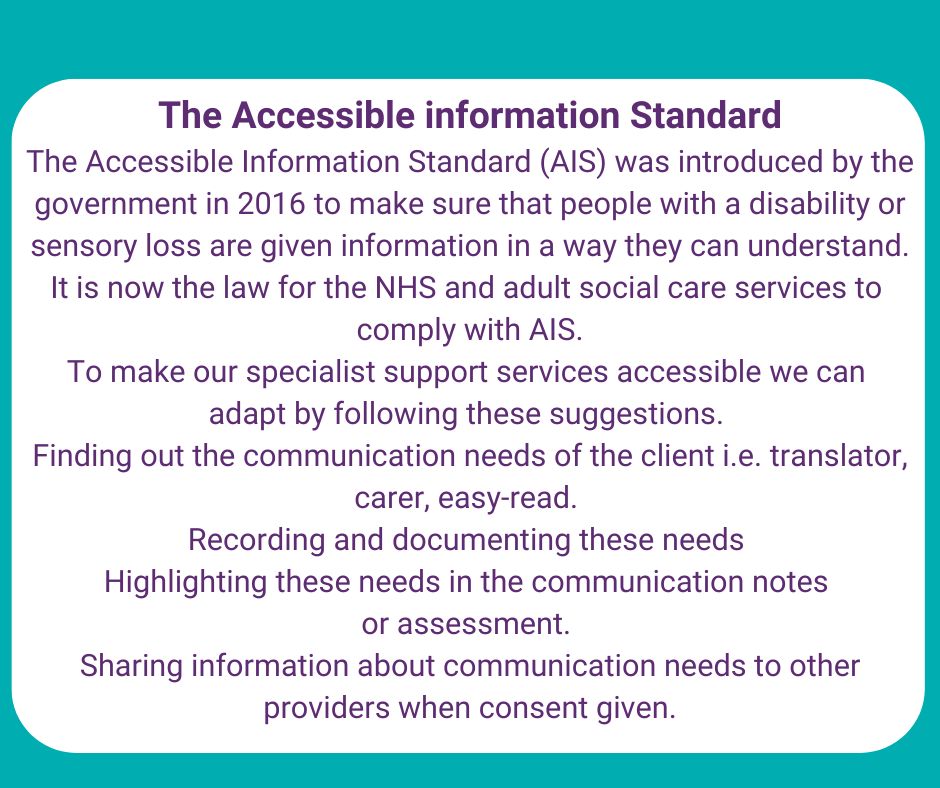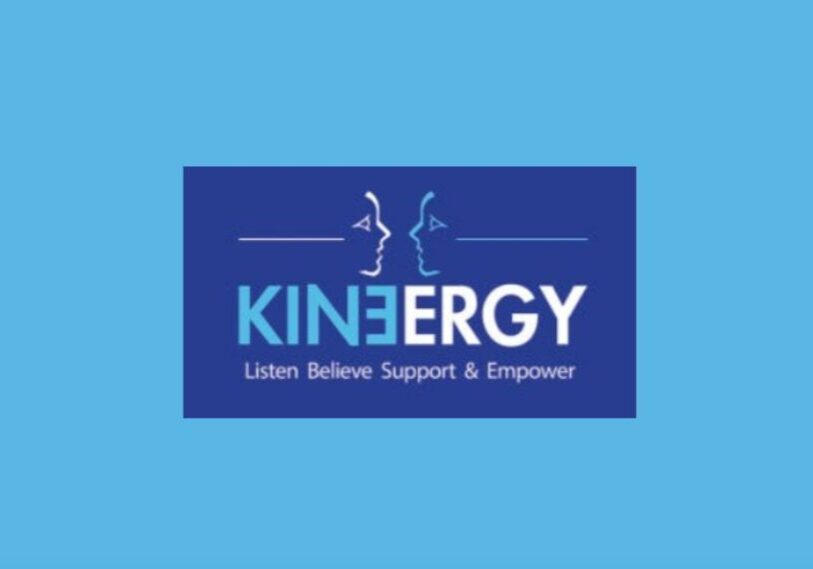
Making services accessible
Based on SARSAS' learning, feedback from the people we support and the views of our lived experience advisory group, we have put together hints and tips for working with autistic people and people with learning disabilities.
Take time to understand how we communicate and that we need time to process what is being said.
SARSAS Advisory Group member
What clients have said that they want from a service
- To be listened to
- To be treated as an equal
- Not to be treated as a child
- For someone to take time to help me understand something
- For someone to take time to understand how I communicate and how I would like to receive information
- Remember we are not all the same, everyone is different. Don’t be afraid to ask us what we need.
Communication
- Treat people age appropriately; do not treat them like a child.
- Avoid making assumptions about a person’s needs. The person is the expert on themselves and knows what they need. Be comfortable asking the person what their needs are.
If the person is unable to communicate their needs, speak to people who know them well to find out how best to communicate with them, for example, a support worker or family member. - Some people with learning disabilities may have a communication passport that they would like to share. This is a book or folder that contains information about how they communicate and their likes and needs.
- Ask people about their communication preference. Some people may feel uncomfortable using the telephone. They cannot process the information fast enough and find it difficult to remember what was talked about.
- Give people other options, such as contact via text, email or a video call.
If needed, use short sentences with simple, clear language and avoid jargon. - Give people time to process information. The person may find it useful to have a plan of what you will be working on or the questions ahead of an assessment.
- Ask people to explain things back to you in their own words to make sure they have understood.
Autistic people often feel additionally victim blamed because we can feel like it is our fault for not recognising the abusive red flags of perpetrators. It is never our fault.
SARSAS Advisory Group member
Additional considerations that an autistic person may value
- Be aware of how you communicate emotions. Some autistic people may need support to identify feelings and emotions.
Be aware that some people may find it difficult putting things into words.
Some autistic people may use masking, this is a way that they can hide their true feelings and helps autistic people communicate. - Some people will value literal communication. Be clear and literal, don’t use metaphors. Using metaphors could be confusing and potentially upsetting for some people for example ‘I had butterflies in my stomach’.
- Detail may be very important; some people may want more detail or further information so ask them if this is important.
- Be clear about the number of support sessions you can provide. Make a clear support plan that sets out what you will work on together. Set clear expectations about what you will do and what is required of them for example arriving on time, letting you know if they can’t attend.
Agree together how the client can let you know if they need a break, or they are finding the conversation difficult.
Written communication – guidelines around making written communication accessible
- Break information down so that one idea or concept can is explained at a time.
- Use short sentences, with a maximum of 15 words. Try to have just one idea in each sentence.
- Bullet points are helpful but no more than three at a time.
- Text size should be in a large front size, minimum of 14 print.
- Add an extra space between lines of your text. This will make it easier to read. For example, in Microsoft Word choose 1.3 line spacing rather than single line spacing.
- Don’t use italics, blocks of capitalised text or underlining.
- A toned background behind text reduces the glare of the paper and makes the text easier to read. People with dyslexia may find yellow especially helpful.
- Don’t use acronyms or abbreviations.
- Consider using pictures and images and developing easy-read information. Not all people with a learning disability will need or want information in easy read, but you can ask them whether they would like information in this format.
Making information easy read was so important. I liked having letters, information, and worksheets in easy read.
SARAS Client
What information do I need before I start supporting someone?
- Reading/writing level – do they need support with forms or information provided in an easy-read format/ large print?
- What sensory needs does the person have? If they are meeting you somewhere, consider noise, lights, smells and sounds of the meeting place. You may want to consider making a sensory check list.
- Consider whether it would be useful for the person to visit the space you will be meeting them in or see photos of the space ahead of support. This will help them to visualise the space, reduce the anxiety of the first meeting and ensure it meets their sensory needs.
- How can support be delivered to meet the person’s needs, for example in person, online, over the telephone?
- Can the person travel independently?
- Do they need support from a support worker to travel to the session or join them in a session?

Appointments
A traumatic experience can impact on memory. Some people with learning disabilities and/or autism might need extra help managing and remembering appointments due to executive functioning, which affects planning, memory, and organisation. You could try:
- A phone call/text message before meeting.
- Giving the client a visual calendar with dates they can tick off.
- Do they need support to write the dates in a paper diary?
- Do they need support to put the date/time in a phone calendar?
- Sending a letter in an accessible format. You could develop a letter template that can be used and adapted to meet the client’s communication needs.
My support worker understood that she needed to go slow and be patient with me. She taught me what boundaries were – this was a real eye-opener. The tools and support are so precious.
SARSA client
One-to-one support
- It can take time to build trust and rapport. Give people time to build trust; don’t feel like you have failed if they don’t engage at first.
- Ask people what they want to gain from support and be flexible and creative in how you can help them to set their goals. For example, it may be supporting them to develop their confidence to attend a social group.
- Agree a way to pause a session before you begin so that if a person does not understand something or needs a break, they feel comfortable to stop you. You could try using stop cards or something that works for them.
- Allow extra time to support people to understand things. You may have to try different ways of explaining concepts or tools.
- Open ended questions can be difficult for some people. It is useful to give a couple of examples or choices.
- Try using visual aids such as photos, pictures or drawing, playing a game.
- There is likely to be a lot of work on understanding boundaries, consent, coercive behaviours and healthy relationships. Use some of the resources in this toolkit and develop your own bank of resources from which you can draw.
- Have sensory or fidget toys available during sessions.
- It can be difficult for some people to understand and maintain boundaries. It is important to set clear boundaries from the beginning of support and be consistent with these boundaries. This might include when you can be contacted, how long you provide support, and what support you can provide. You may need to explain these to people on a regular basis.
- Support the person to plan who they can contact if they need support after a session or outside of sessions, for example a family member, close friend or helpline.
- At the end of the session, make a plan for the next session. This will help people to feel prepared and informed ahead of the next session.
- Ensure that the person is aware of how to complain or who to speak to if they are unhappy with the support being provided.
Ending support
Endings can sometimes bring up powerful emotional responses reminding us of grief, loss, and other difficult endings experienced in our lives, especially if a trusting, therapeutic relationship has been developed.
- If psychological therapy is being provided, it can be useful to provide a clear end date through a calendar or diary so the client can visualise and prepare for the ending.
- If practical support is being provided the worker could find a way to celebrate or mark the ending in a way that is planned and acknowledged rather than avoided.
- Support people to talk about how they feel about the ending and reassure that they can form healthy relationships with others.
- Understand what other services in the local area, signpost or refer to befriending, social networks and groups.
More information
The latest from our news and blogs

Be the change: how to be an Active Bystander
We can all be bystanders. Every day events unfold around us. At some point, we will register someone in danger. When this happens, we can decide to do or say something (and become an active bystander), or to let it go (and remain a passive bystander).

Kinergy closure statement
We are deeply saddened by the closure of Kinergy, an organisation that has provided invaluable support to survivors of sexual violence for nearly 30 years.

The power of creativity in healing: songs of survival
Recently, two people reached out to us independently, each having recorded a song about their personal experiences of sexual violence. Their powerful and deeply moving songs serve as a testament to resilience, and we’re honoured they asked us to share their work.










